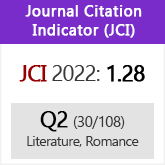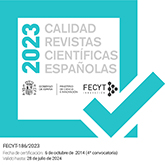Tradition, avant-garde and poetics in Madrigal al billete de tranvía by Rafael Alberti
DOI:
https://doi.org/10.3989/revliteratura.2009.v71.i142.93Keywords:
Vanguard, Tradition, Rafael Alberti, Cal y canto, PoeticsAbstract
The dialogical relation that the Spanish Vanguard settled with tradition —a usual phenomenon also in Latinamerica— has given place to parceled interpretations of the art and literature of the early XXth century, and, specially, of the poetry of the so-called «Generación del 27». During the last two decades, critical approaches has shown that the alliance between the past and «the new» is far from being an obstacle that condemns the Spanish «ismos» to be seen as inauthentic ones, and therefore to be accused of not having the transformative impulse that characterized the artistic projects of the early modernized European countries. Based on the recent works that have reviewed these premises (Soria, Olmedo, Geist, Bosi, García Montero, Wilson...), the purpose of this article is to analyze the well known (and many times cited) Rafael Alberti’s poem «Madrigal al billete de tranvía», with the aim to explore, in a creative text, the manifestations of a vanguardist aesthetic that re-elaborated the lyric models inherited from the tradition. In addition to this, this article aims to show that, below the hermeticism of the «neo-Gongorian» madrigal discourse, lies the brief manifesto of a poetics whose decipherment enriches the interpretations of Alberti’s works during the 20s.
Downloads
Download data is not yet available.
Downloads
Published
2009-12-30
How to Cite
Macciuci, R. (2009). Tradition, avant-garde and poetics in Madrigal al billete de tranvía by Rafael Alberti. Revista De Literatura, 71(142), 565–584. https://doi.org/10.3989/revliteratura.2009.v71.i142.93
Issue
Section
Studies
License
Copyright (c) 2009 Consejo Superior de Investigaciones Científicas (CSIC)

This work is licensed under a Creative Commons Attribution 4.0 International License.
© CSIC. Manuscripts published in both the printed and online versions of this Journal are the property of Consejo Superior de Investigaciones Científicas, and quoting this source is a requirement for any partial or full reproduction.All contents of this electronic edition, except where otherwise noted, are distributed under a “Creative Commons Attribution 4.0 International” (CC BY 4.0) License. You may read here the basic information and the legal text of the license. The indication of the CC BY 4.0 License must be expressly stated in this way when necessary.
Self-archiving in repositories, personal webpages or similar, of any version other than the published by the Editor, is not allowed.














